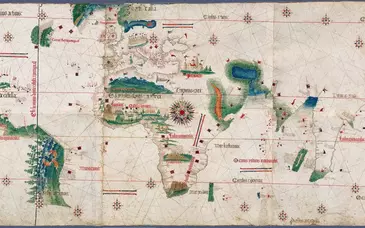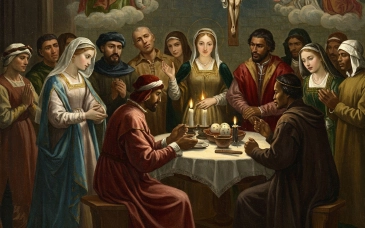If there is a moral absolute which is recognized by most of the great religions, then does it really matter whether one is Confucian, Taoist, Hindu, Buddhist, Islamic, Jewish, or Christian? Don't all of the great religions point in the same direction? Does it really matter what path we take as long as we are going in the right direction?
Here again, C. S. Lewis is helpful. He observes, first of all, that, if you are a Christian, you don't have to believe that all of the other religions are completely wrong in everything they affirm. On the other hand, if you are an atheist, you will have to believe that the main point of all of the religions of the world is simply a huge mistake.1 These considerations led C. S. Lewis to a belief in Jesus Christ:
To me, who first approached Christianity from a delighted interest in, and reverence for, the best pagan imagination, who loved Balder before Christ and Plato before St. Augustine, the anthropological argument against Christianity has never been formidable. On the contrary, I could not believe Christianity if I were forced to say that there were a thousand religions in the world of which 999 were pure nonsense and the thousandth (fortunately) true. My conversion, very largely, depended on recognizing Christianity as the completion, the actualization, the entelechy, of something that had never been wholly absent from the mind of man.2
C. S. Lewis rightly observed that Christianity is the fulfillment, not only of Judaism, but of what is best in all religions:
I couldn't believe that nine-hundred and ninety-nine religions were completely false and the remaining one true. In reality, Christianity is primarily the fulfillment of the Jewish religion, but also the fulfillment of what was vaguely hinted in all the religions at their best. What was vaguely seen in them all comes into focus in Christianity.3
Whatever is true in all religions is consummated and made perfect in Jesus Christ:
Though all salvation is through Jesus, we need not conclude that He cannot save those who have not explicitly accepted Him in this life. . . . we are not pronouncing all other religions to be totally false, but rather saying that in Christ whatever is true in all religions is consummated and perfected. But, on the other hand, I think we must attack wherever we meet it the nonsensical idea that mutually exclusive propositions about God can both be true.4
C. S. Lewis recognized that, where Christianity differs from other religions, Christianity is true. While both Christians and non-Christians wish to do good for man, it is Christianity that has the answers:
Suppose you found a man on the point of starvation and wanted to do the right thing. If you had no knowledge of medical science, you would probably give him a large solid meal; and as a result your man would die. That is what comes of working in the dark. In the same way a Christian and a non-Christian may both wish to do good to their fellow men.5
1 C. S. Lewis, Mere Christianity (New York: MacMillan Co., 1943), p. 43.
2 C. S. Lewis, God In The Dock, ed. Walter Hooper (Grand Rapids, Mich.: William B. Eerdmans Publishing Co., 1970), p. 132.
3 Ibid., p. 54.
4 Ibid., p. 102.
5 Ibid., p. 109.



